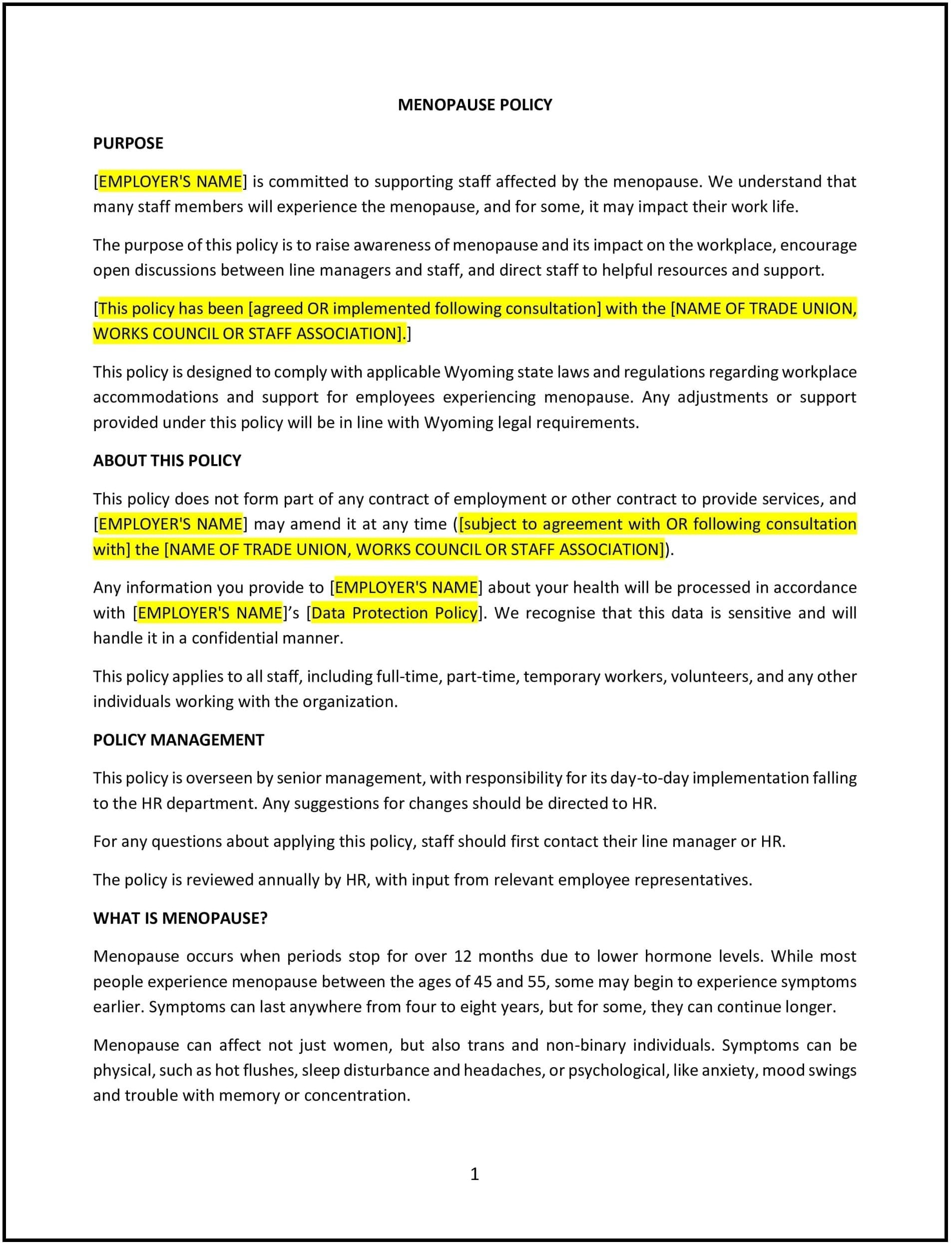Got contracts to review? While you're here for policies, let Cobrief make contract review effortless—start your free review now.

Customize this template for free
Menopause policy (Wyoming)
In Wyoming, a menopause policy provides guidelines for supporting employees experiencing menopause, fostering a workplace culture of understanding, inclusivity, and flexibility. This policy aims to ensure that employees feel supported while maintaining workplace productivity and morale.
This policy outlines accommodations, resources, and responsibilities to address the challenges associated with menopause, promoting well-being and inclusivity in the workplace.
How to use this menopause policy (Wyoming)
- Define the purpose: Clearly state the organization’s commitment to supporting employees experiencing menopause and fostering an inclusive workplace.
- Provide accommodations: Include examples of reasonable adjustments, such as flexible working hours, access to temperature-controlled spaces, or additional breaks.
- Raise awareness: Offer training and resources for managers and employees to increase awareness and understanding of menopause-related challenges.
- Establish communication guidelines: Encourage open and respectful conversations between employees and supervisors to address individual needs.
- Support compliance: Align the policy with Wyoming labor laws and anti-discrimination regulations to ensure fair treatment.
Benefits of using a menopause policy (Wyoming)
A menopause policy provides several advantages for Wyoming businesses:
- Promotes inclusivity: Creates a supportive environment for employees experiencing menopause, fostering workplace diversity.
- Enhances well-being: Provides resources and accommodations that improve employee health and morale.
- Supports compliance: Aligns with anti-discrimination laws, reducing the risk of legal issues.
- Improves retention: Demonstrates a commitment to employee well-being, encouraging loyalty and reducing turnover.
- Adapts to workforce needs: Reflects Wyoming’s diverse workforce and supports employees across various industries.
Tips for using a menopause policy (Wyoming)
- Communicate clearly: Share the policy with employees during onboarding and ensure it is accessible in the workplace.
- Provide training: Offer training sessions for managers to help them understand menopause-related challenges and appropriate accommodations.
- Encourage feedback: Create opportunities for employees to share feedback on the policy and suggest improvements.
- Promote flexibility: Allow employees to request accommodations tailored to their specific needs.
- Review periodically: Update the policy to reflect changes in laws, workplace practices, or employee feedback.